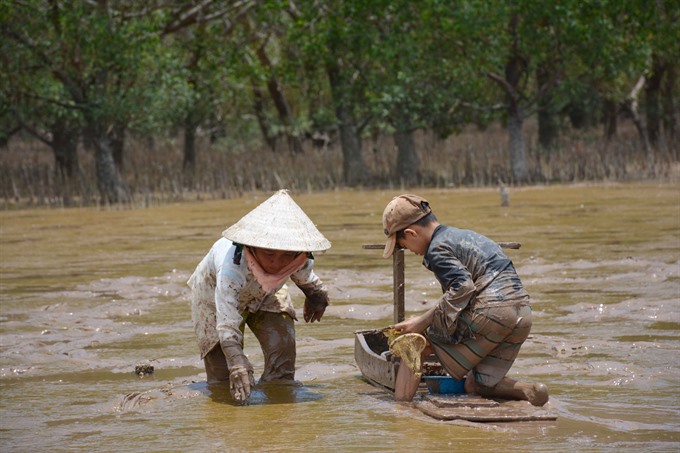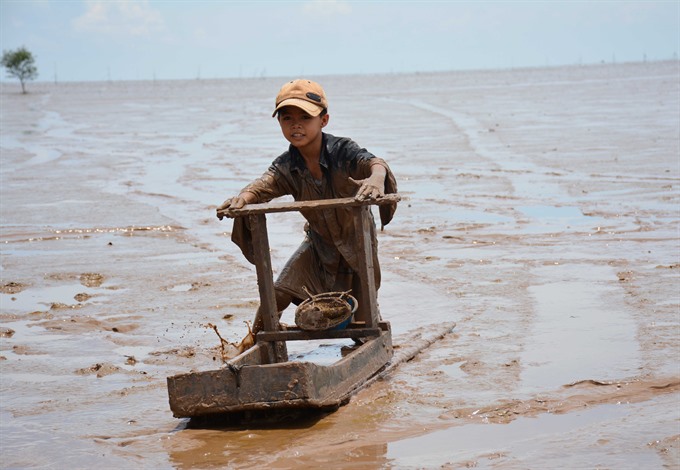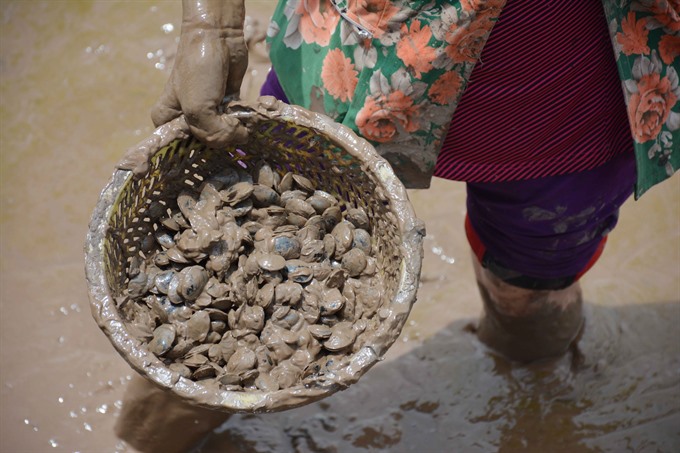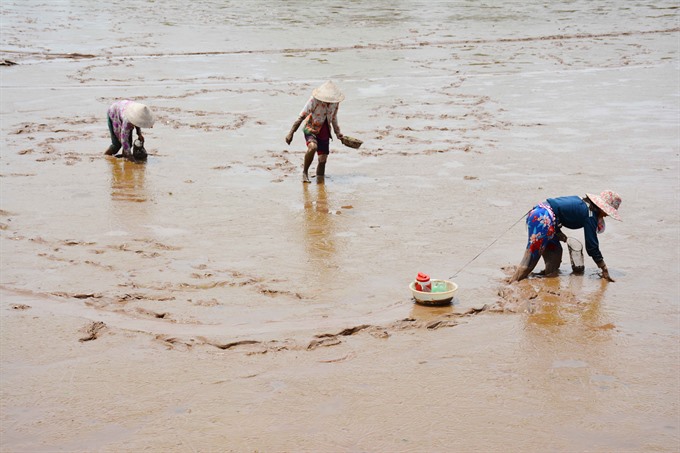Located some 30km east of Mekong Delta city of Soc Trang, Tran De District is well-known for its mud flats that span over dozens of kilometres.
The muddy plains are home to a rich and complex diversity of sea creatures including sea shells, crabs and fish.
For hundreds of years, local fishermen from Mo O Hamlet in Tran De have been heading out to collect them when the tide is out.
To make travel easier, locals invented the mong — wooden planks fashioned with a large basket to store their haul — which also gives the occupation its name "trượt mong", meaning skidding mong.
A trip to the muddy plains usually takes a few hours at least. On a good day, a fisherman can make US$45.
"It’s getting more difficult now. There used to be a lot more to collect near the villages. But we have to go much further now for a decent amount and even then it’s hit and miss," said Tran Co, a local fisherman who has been skidding mong for years.
"The income isn’t stable. Many youngsters from our village left for the big cities to look for jobs."
There are some 40 households in the hamlet that rely on skidding mong for a living, most of them are poor households with no land to cultivate.

With less catch to be found near the mainland. Local fishermen have to go out much further for a decent catch nowadays.

A fisherwoman shows her catch. Sea shell creatures can be found in abundance in the mud flats but fetch little value in the market.

A little boy skids his mong on the mud. Many of them learn the trade to help their parents out in their free time.

A mother and child looks for fish in the mud. Some can weigh up to three kilos.
VNS